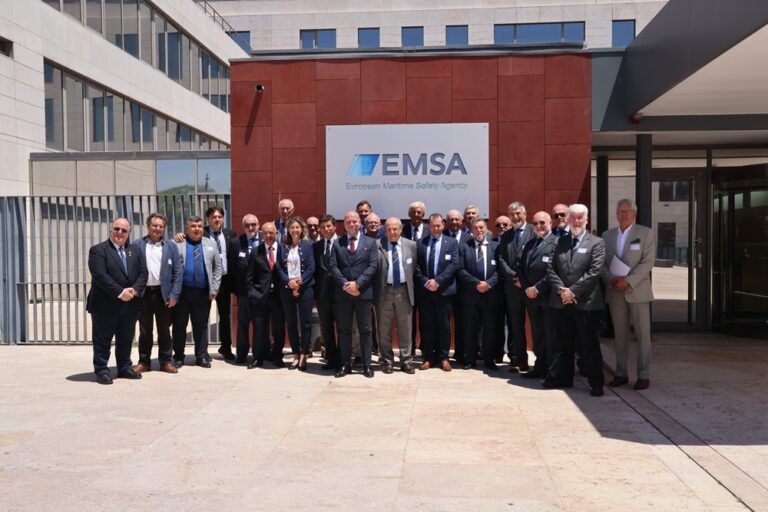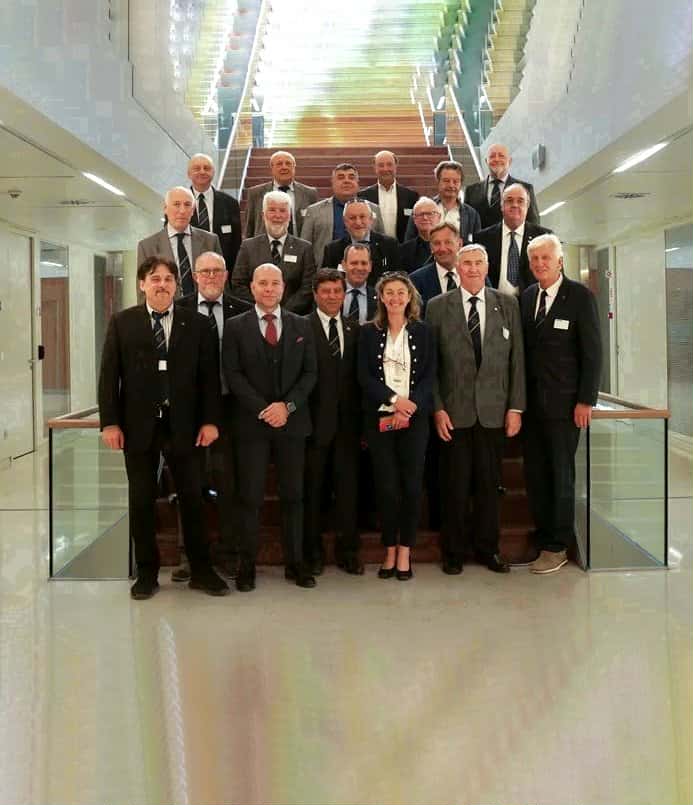European commanders call for greater uniformity between states and ports through digitalisation, following the example of the United States
Lisbon – The thirtieth meeting of CESMA-Confederation of European Shipmasters Associations, an international organization founded in 1995 that brings together twenty-one national associations of shipmasters from sixteen European countries, representing approximately one thousand maritime professionals, was held on 15 and 16 May in Lisbon: the president is Bulgarian Dimitar Dimitrov.
CESMA includes USCLAC-Unione Sindacale Capitani di Lungo Corso al Comando, represented in Lisbon by commanders Emanuele Bergamini, president, and Antonio Raggi, and the National College of Captains, represented by commander Gianni Lettich, president.
Standardization of the documentation required
The two-day event addressed issues of particular interest to the world of shipping and in particular to ship command.First of all, the need for standardization of the documentation required for ships entering the various European ports emerged with determination, especially pushed by the Italian delegation: in fact, this varies depending on the nation in which one operates, forcing the already heavily burdened edges to take on additional bureaucratic work.
In the United States it is simpler on contrary Europe
“In the United States it is simpler: there all you need is a declaration like the Enoa-Entrance notice arrival, which is valid for all American ports. In Europe the necessary documents vary from country to country, and in Italy for some documents even from port to port, think for example of the waste declaration” explains Emanuele Bergamini, who with his Italian colleagues has promoted the request for greater uniformity also to streamline the work of the command and crews, increasingly reduced by the current armament tables.
Digital “box”
The proposal is to create a sort of digital “box” for each ship in which to contain all the necessary documents and which the various local authorities can access through a username and password mechanism similar to that of Spid, for example.
Opportunity to adapt the SOLAS regulation

CESMA also highlighted the opportunity to adapt the SOLAS regulation, which today is outdated in particular in the parts that concern the maneuverability of the ship and the stowage and control of containers.This year too, the phenomenon of criminalization of crews and captains in particular has been widely discussed by CESMA.
How can the captain be blamed?
“A modern ship carrying 25,000 containers can have just five crew members dedicated to checking the stowage operations: how can we expect that checks on how the containers are positioned, in compliance with the lashing manual, are always accurate and, above all, that the captain is responsible for any problems? A declaration from a third party certifying that the lashing was done correctly would be needed. The same goes for a case of incorrect diagnosis by the medical staff of a passenger ship, which carries thousands of people: how can the captain be blamed?” adds Antonio Raggi.
The second day of CESMA work
The second day of CESMA work was hosted at the headquarters of EMSA-European Maritime Safety Agency: Lanfranco Benedetti, project officer for ship safety of EMSA, and Diaz Yraola, project officer for passenger ship of the European agency, spoke about safety in navigation and alternative fuels with low environmental impact.
(SOLAS) Convention
On the other hand the International Convention for the Safety of Life at Sea (SOLAS) is the most critical international treaty concerning the safety of merchant ships. Developed and maintained by the International Maritime Organization (IMO), SOLAS sets minimum safety standards in construction, equipment, and operation to ensure that ships flagged under its signatory states comply with uniform safety benchmarks.
For maritime professionals—whether in fleet management, procurement, compliance, or technical operations—SOLAS is more than a regulatory requirement. It defines the framework for vessel safety readiness, dictates audit and inspection protocols, and directly impacts equipment sourcing, maintenance, and certification cycles.
SOLAS is not just a legal mandate—it’s a fundamental pillar of maritime operational safety and risk management. For vessel managers and supply chain professionals, integrating SOLAS compliance into procurement, crew training, and audit preparation drives both regulatory adherence and business continuity.
Looking ahead, the rise of digital compliance ecosystems, AI-driven certification tracking, and data-integrated procurement will further enhance how maritime stakeholders manage SOLAS requirements across fleets. Staying current with regulatory updates and leveraging technology will remain critical to efficient, compliant, and resilient vessel operations
Sources : Shipping Italy + AVS





